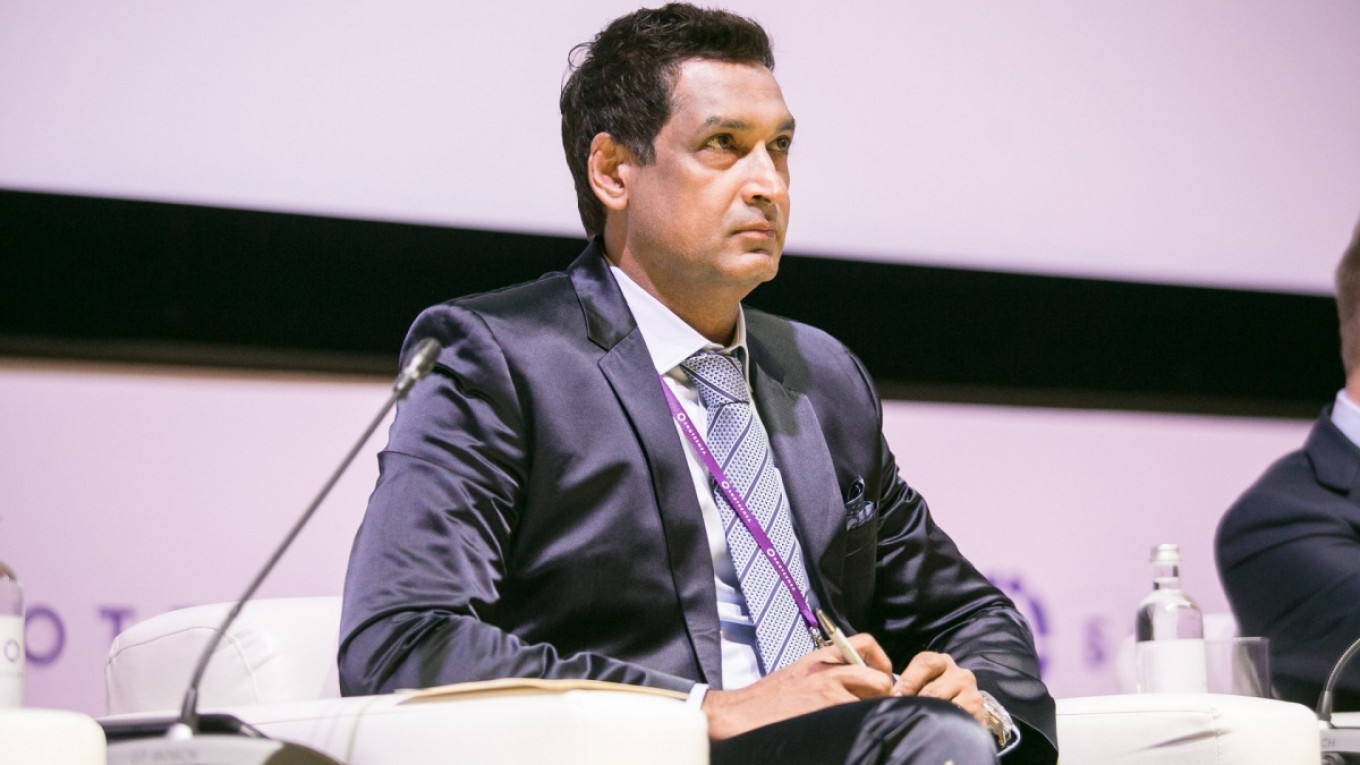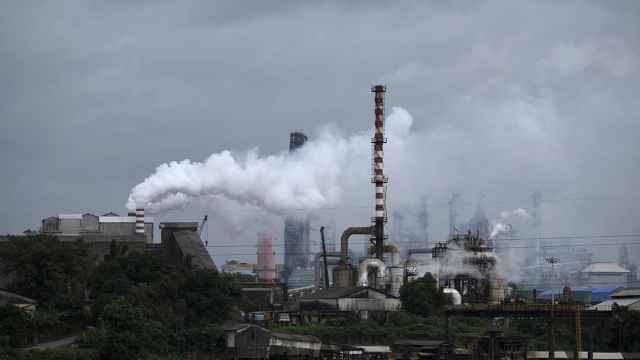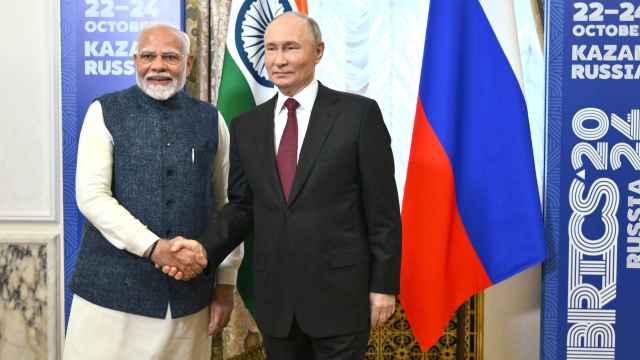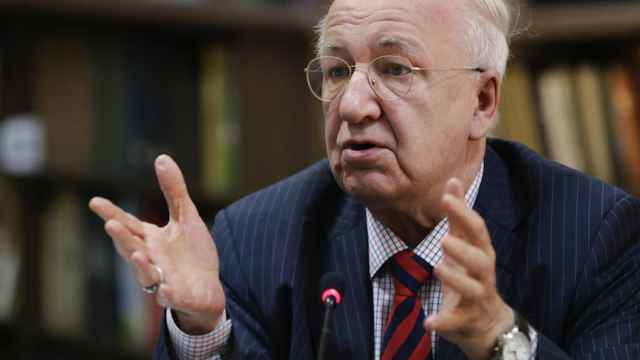Forbes Magazine’s latest annual billionaires list includes 15 new entrants from Russia. A notable standout was the Indian-born pharmaceuticals businessman Vikram Punia, who boasts a net worth of $2.1 billion and is currently ranked the 1,688th-richest person in the world.
Having moved to Irkutsk in 1992 as a medical student, Punia abandoned his studies midway, got married and eventually founded Pharmasyntez after spending years doing odd jobs and side hustles to make ends meet.
As the India-Russia “Special and Privileged Strategic Partnership” continues to evolve and yield record annual trade turnover of over $70 billion, maintaining a low profile is no longer an option for the 52-year-old Jaipur native.
Though President Vladimir Putin did not reference Punia’s background when he spoke via video link at the opening ceremonies of two Pharmasyntez factories in 2020 and 2023, his endorsement shows that he is content for Punia to be spotlighted as an example of color-blind meritocracy in Russia’s business landscape.
Besides the vast fortune he managed to amass by monopolizing the domestic market for affordable generic drugs and life-saving vaccines, the industrialist serves as a de facto commercial liaison between Moscow and New Delhi — helping Indian investors navigate barriers to entry as well as culture shocks they may face when foraying into a heavily sanctioned jurisdiction not known for its robust rule of law or transparency.
Based on his own experience of adapting seamlessly to life in Russia as an outsider, Punia is uniquely qualified to build bridges at the grassroots level.
It is no secret that the “time-tested” and “all-weather” Indo-Russian alliance has long been undergirded by mercantilism and failed to generate greater cross-cultural awareness or interaction among ordinary citizens. Admittedly, both sides were more than happy to preserve this status quo up until the full-scale invasion of Ukraine in February 2022 and the ensuing Western-led sanctions crusade against Russia.
The Indian Defense Ministry has already begun weaning itself off a toxic over-reliance on Russian arms imports and courting alternative suppliers in France, Israel and the United States.
Likewise, India’s insatiable appetite for cheap Russian hydrocarbons will almost certainly fizzle out once the G7 price cap is lifted and the pan-EU oil embargo is eased. From the Kremlin’s standpoint, neither the provision of advanced weaponry nor fossil fuels at giveaway prices is a powerful enough lever to keep New Delhi onside.
Were the Russian government to instead focus on attracting a critical mass of ambitious Indian youth buoyed by Punia’s rags-to-riches journey, its relationship with India would be much less susceptible to external pressure.
Although it makes eminently good sense for a fast-growing economy still bearing the scars of its colonial past to be in league with like-minded, fiercely independent BRICS members and embrace multipolarity, the South Asian giant can ill afford to distance itself from the Anglosphere, which hosts a sizeable ethnic Indian diaspora.
Prime Minister Narendra Modi has dubbed them India’s overseas “brand ambassadors” and would gladly welcome more purveyors of Indian soft power planting their flag in Russia to counter arch-foe China’s burgeoning presence there. The Modi administration has grown weary of playing second fiddle to the Chinese Communist Party and being regarded as something of an afterthought by the Kremlin ever since the Sino-Russian “no-limits” agreement was struck three years ago.
Exporting human capital is perhaps India’s best bet to ensure that its predominantly transactional engagement with Russia takes on a more multifaceted dimension that does not crumble under the weight of potential secondary sanctions. It is worth noting that strong people-to-people links have been the bedrock of India’s steadfast cooperation with Iran even at the height of Donald Trump’s pressure campaign.
Take the example of Iran. Thousands of Iranian students remain enrolled in full-time education at various Indian universities, clerics from the Islamic Republic frequent India regularly to deliver religious sermons to the latter’s Shia minority, and it is not uncommon to find portraits of Ayatollah Khamenei or slain commander Qasem Soleimani in public places across Indian-administered Kashmir. The ruling Bharatiya Janata Party (BJP) declared a day of state mourning last May following the death of then-Iranian President Ebrahim Raisi.
Russia has similarly ramped up its influence-peddling in India during the past few years, with state-sponsored propaganda outlet RT at the forefront of covert efforts to win over the Indian masses via integrated advertising campaigns and Kremlin-friendly news coverage. The Russian broadcaster has also afforded significant airtime to former Indian diplomats, retired army generals and Bollywood celebrities sympathetic toward Putin’s war, while co-opting anti-Western journalists, academics and think-tankers from India as freelance columnists.
Moreover, the Russian Economic Development Ministry has sought to lure a larger volume of Indian tourists to their nation by bolstering direct air connectivity, streamlining the issuance of e-visas and getting representatives from the Moscow City Tourism Committee to participate in flagship travel roadshows in India like SATTE and OTM.
Ultimately, and as far as Putin is concerned, this endeavor is merely a means to an end. It is hoped that familiarizing Indian business or leisure travelers with Russia will, in due course, convince them to undertake lucrative ventures in the increasingly isolated country and possibly even consider residing there on a permanent or semi-permanent basis, thanks to the recently launched Russian Golden Visa.
According to a 2024 report by investment migration consultancy Henley & Partners, 4,300 dollar millionaires from India were expected to move abroad that very year. Given the surge in right-wing populism and anti-immigrant sentiment throughout the Euro-Atlantic space, coupled with the volatile situation in the Arabian Peninsula, Russia understandably fancies its chances of emerging as a destination of choice for India’s uber-wealthy.
Far from being deterred by the extent to which Russia now finds itself cut off from the international community, Indian oligarchs close to Modi, like Mukesh Ambani and Naveen Jindal, have incidentally made a killing on the Ukraine crisis.
Seeing as India has been reluctant to partake in the de-dollarization agenda championed by Putin or endorse the establishment of a pan-Eurasian security architecture to rival NATO, the Russian leader could weaponize Indian expatriates and their investments in his country as a means of blackmailing the “world’s largest democracy” into adopting a more muscular posture toward U.S. primacy across the Global South.
At the very least, Punia’s case could serve as inspiration for the growing number of Indian students flocking to Russia and businessmen on the move. With Russian oligarchs’ collective wealth increasing by $11.5 billion in Q1 2025 alone, despite many being under unprecedented targeted sanctions, it is clear that there is still plenty of money to be made in Russia.
By keeping his head down and limiting his firm’s exposure to the West, Punia has, in a sense, cracked the code of how to reach billionaire status despite the deck being stacked against the Russian elite.
It’s little wonder that the Kremlin has every intention of milking Punia’s stratospheric ascent up the Forbes league table to churn out more high-net-worth individuals with Indian roots.
A Message from The Moscow Times:
Dear readers,
We are facing unprecedented challenges. Russia's Prosecutor General's Office has designated The Moscow Times as an "undesirable" organization, criminalizing our work and putting our staff at risk of prosecution. This follows our earlier unjust labeling as a "foreign agent."
These actions are direct attempts to silence independent journalism in Russia. The authorities claim our work "discredits the decisions of the Russian leadership." We see things differently: we strive to provide accurate, unbiased reporting on Russia.
We, the journalists of The Moscow Times, refuse to be silenced. But to continue our work, we need your help.
Your support, no matter how small, makes a world of difference. If you can, please support us monthly starting from just $2. It's quick to set up, and every contribution makes a significant impact.
By supporting The Moscow Times, you're defending open, independent journalism in the face of repression. Thank you for standing with us.
Remind me later.






